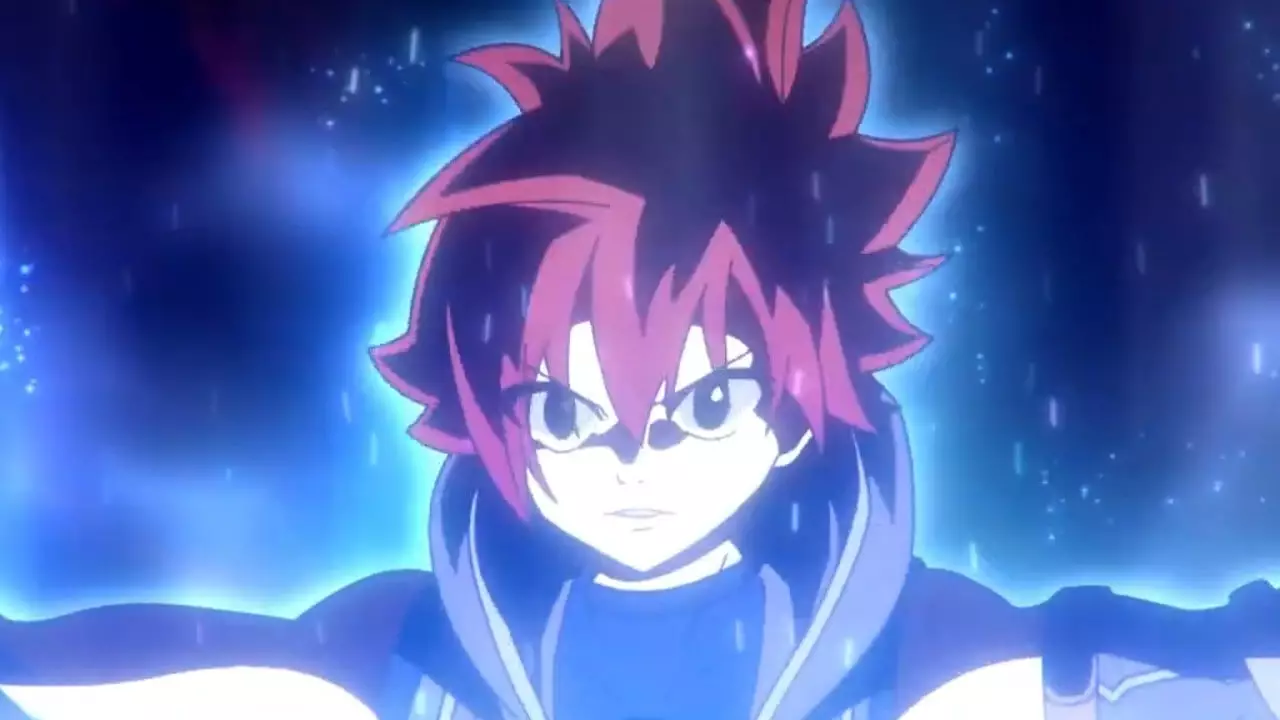In June 2024, during the Nintendo Direct, Marvelous introduced their latest creation, *Farmagia*, an action RPG that incorporates farming elements reminiscent of their popular series, *Rune Factory* and *Story of Seasons*. However, what’s intriguing about *Farmagia* is its unique twist: players cultivate not crops, but monsters, shifting the familiar farming simulation into a fantastical monster-catching domain. This game stands out not just for its concept but also for its aesthetic, shaped by renowned manga artist Hiro Mashima, known for his work on *Fairy Tail* and *Edens Zero*.
At the heart of *Farmagia* lies Ten, a charismatic character leading a band of magical tamers as they navigate a war-torn landscape. The narrative structure is divided into twelve chapters, each organically interweaving character arcs with the overarching plot. This dual focus on friendship and conflict echoes the beloved themes prevalent in anime, providing a nostalgic yet refreshing storytelling approach.
Despite the predictability of some plot points—where one of Ten’s companions undeniably finds themselves at the center of each chapter—this formula helps flesh out character development. It’s a warm reminder of the tropes often explored in fantasy works that celebrate camaraderie and overcoming adversity. While the narrative may not break new ground, it’s the charm and familiarity that keep players invested, much like beloved shows that we binge-watch because the characters feel like old friends.
However, while the narrative is engaging, there are moments where it feels weighed down by excessive lore dumps. The balance between necessary world-building and engaging storytelling becomes a tightrope walk, and at times, the game leans too heavily into exposition that may leave players longing for more dynamic interactions.
*Farmagia* uniquely combines farming with the thrill of dungeon crawling. Players must invest time in nurturing their monster crops, but a gameplay mechanic disallows full immersion into farming—Stamina points, which govern activities, can only be replenished by venturing into dungeons. This requirement inadvertently breaks the rhythm, potentially frustrating players who wish to engage deeply with the farming simulation.
The agricultural aspect, unfortunately, feels underdeveloped. Although the premise of raising magical monsters is enticing, the actual farming environment appears lifeless and disconnected from the vibrant world around it. This lack of engagement runs counter to the expectations set by immersive farming games where the farm feels alive and brimming with activity.
Moreover, the dungeon environments, while 3D and visually appealing, fall into a repetitive pattern that can hinder excitement. Each maze feels preordained and lacks the variability that one typically anticipates from engaging action RPGs. This repetition detracts from the novelty of exploration, making the player’s journey feel somewhat hollow.
The combat system is quite simplistic. Players can wield only twelve different monsters, each representing various roles akin to weapons or skills. While there is an opportunity for team-building with monster abilities, the combat lacks the complexity that seasoned players might seek. Instead of an intricate combo system often prevalent in action RPGs, players mainly focus on timing parries and unleashing a singular, powerful summon-like attack called Fusion Buddy.
This simplicity could be seen as a double-edged sword: it may prove appealing to newcomers to the genre, but might leave veterans yearning for a richer, more strategic combat experience. Combat often devolves into a repetitive rhythm, fighting countless enemies without feeling a true sense of progression in battle mechanics or encounters.
Despite the game’s shortcomings in farming and combat complexity, the visuals in *Farmagia* shine brightly. The character designs, influenced by Mashima’s distinctive artistry, resonate well with anime archetypes. Each character carries a unique style, embodying traits that fans of the genre would immediately recognize and appreciate. The backgrounds in dialogue scenes are lush and colorful, immersing players into its magical world, showcasing the effort put into the game’s visual presentation.
However, the diversity in monster design leaves something to be desired. The creatures often lack individuality, with variations merely becoming color swaps or minor modifications rather than fully embracing unique designs that reflect their supposed strength or personality. This lack of differentiation can be disappointing, especially considering monsters are central to the gameplay mechanics.
Ultimately, *Farmagia* hits the mark in delivering a charming fantasy experience, celebrating friendship and adventure wrapped in vibrant art and light-hearted storytelling. While the inclusion of farming elements presents intriguing possibilities, the execution falters, making it less engaging than dedicated farming games. Action RPG veterans may find the combat and progression too simplistic, but for those seeking a delightful blend of monster taming and storytelling, *Farmagia* provides a captivating experience reminiscent of a lighthearted anime journey.
As players dive into this magical world, they must navigate some rough patches, yet the overall charm and engaging narrative make *Farmagia* a worthy pursuit for fans eager for fantasy adventures. It may not redefine the genre, but it distinctly carves a niche, blending familiar motifs into a compact yet enchanting experience.

